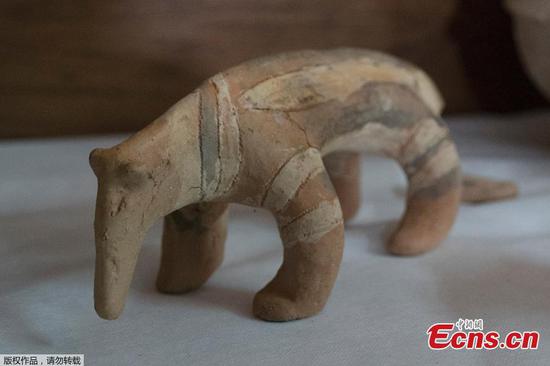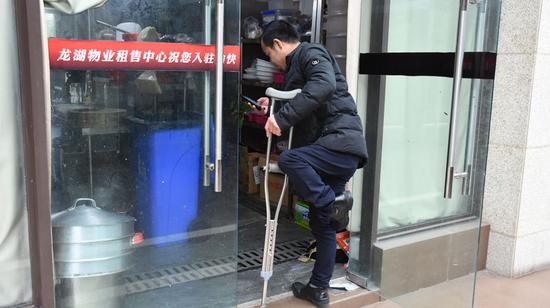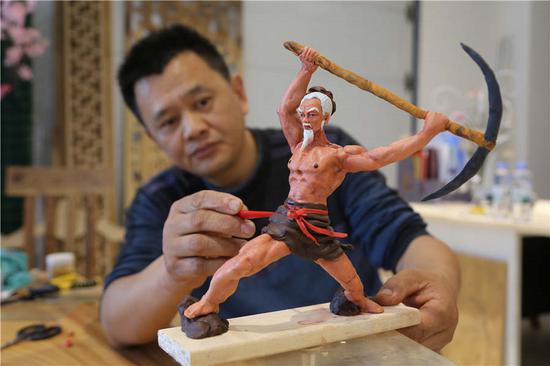
A client is instructed by a professional trainer at a Keepland Power Link class. [Photo provided to China Daily]
In 2016, the National Fitness Program for 2016-20 was launched by the State Council to promote overall health development, with the target of getting 435 million people to regularly take part in physical exercise by 2020.
According to IBISWorld, a global business intelligence information provider, over the past five years, the fitness industry in China has grown by 11.2 percent to reach revenue of $7 billion this year. In the same time, the number of businesses has grown by 8.7 percent and the number of employees has risen by 7.6 percent.
With the number of traditional training facilities rising from about 500 in 2001 to more than 37,000 this year, different fitness brands providing personalized group classes on the internet, or related technology, are appearing and have proved popular, especially among the younger generation, according to the China Briefing website.
Keepland offers self-developed mixed intensity and training, also known as MIXT, and specialized fitness courses for its offline users as well as providing smart sports devices for real-time monitoring of body data. The program integrates online and offline data to facilitate the development of personalized fitness regimens.
Li said data collection and continued curriculum development as well as cooperation with other fitness systems has led to nearly 280 courses being provided to meet users' needs. The classes include "Bubble Butt" for hip and leg toning, "Core Master" for abdominal muscles, and dancing classes such as Zumba (a dance form with an aerobics fitness program).
Xia Jinglong, co-founder of Supermonkey, said it is paying close attention to self-developed classes to meet customers' needs.
"The fitness needs in China and abroad are quite different due to diverse cultural influences," he said. "For example, we have developed the 'Butt Shaper' lesson, which is more suitable for Chinese, as female practitioners wish to reshape their hips, but want to keep their legs slim at the same time."
Founded in 2014 in Shenzhen, Guangdong province, Supermonkey now has more than 100 fitness rooms in seven cities, including Beijing and Shanghai.
Xia said curriculum innovation reflects changes in the fitness concept in China, as more people now understand that this is essentially a way of life.
Liu said the classes she has registered for with SpaceCycle, which she takes once or twice a week, allow her to meet basic exercise needs and maintain her health.


















































